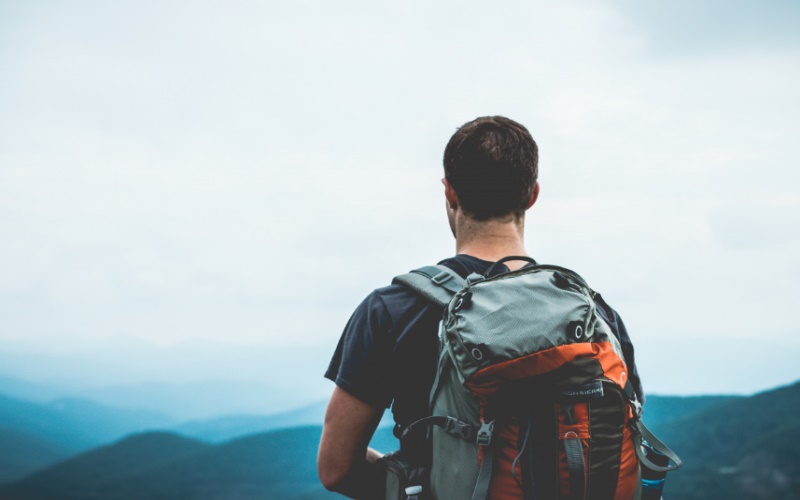Travel is an adventure filled with excitement and discovery, but it’s essential to prioritize your personal safety to remember the journey fondly ever after. Vibrant cities, serene landscapes, beautiful seas – all of that is worth seeing and exploring, but taking proactive measures to safeguard your health, belongings, and personal security is crucial. Some issues are just too important, namely: staying healthy, avoiding potential threats from criminals, and protecting your belongings every step of the way.
Keep your health in check
Maintaining good health while traveling abroad is essential for enjoying your trip to the fullest. Here’s how you can take care of your well-being:
Do your pre-travel preparations
Before embarking on your journey, it’s essential to prepare yourself health-wise. First, you can consult with a healthcare professional. Visit your doctor or a travel clinic to discuss any necessary vaccinations or medications required for your destination. They’ll provide valuable advice tailored to your specific health needs and the region you’re visiting.
Next, pack a travel health kit. It is never a bad idea to assemble a travel health kit containing essential items such as prescription medications, over-the-counter remedies for common ailments like headaches and upset stomachs, first-aid supplies, and any personal medical devices you may need.
While a kit is a must, purchasing travel insurance would be a great idea too. Invest in comprehensive insurance that covers medical emergencies, including hospitalization, evacuation, and trip cancellations or interruptions. Having adequate coverage gives you peace of mind knowing that you’re financially protected in case of unexpected health-related issues.
Also, make sure that the gadgets you plan to take on the trip are in good working order. Check if anything needs to be repaired. It is best to contact pro technicians for this matter, since there are experts that can help you with any phone type and issue: Android or iPhone repairs – water damage, faulty screen, or something more serious – are best entrusted to professionals.
Stay hydrated and eat well
Proper hydration and nutrition are vital for staying healthy and energized during your travels. You can maintain your well-being by adhering to several quite simple practices.
- Stay hydrated by drinking plenty of water throughout the day, especially in warm climates or when engaging in physical activities. Carry a reusable water bottle and refill it whenever possible, but be cautious of the water source—opt for bottled or filtered water if tap water isn’t safe for drinking.
- Eat balanced meals. You might enjoy the local cuisine, but be mindful of food safety and hygiene practices. Choose reputable eateries with high standards of cleanliness, and opt for freshly prepared dishes cooked thoroughly to reduce the risk of foodborne illnesses. If you have dietary restrictions or food allergies, tell the restaurant staff about it.
- Stay well-rested at all times. Traveling can be exhausting, so first you should get enough sleep each night. Establish a regular sleep routine, minimize disruptions, and create a comfortable environment. Listen to your body and take breaks when needed to prevent fatigue and burnout.

Remember about hygiene
Maintaining good hygiene habits is how you prevent the spread of illnesses and stay healthy while traveling. At the very least, you should wash your hands with soap regularly, especially before eating, after using the restroom or touching surfaces in public places. If soap and water aren’t available, use alcohol-based hand sanitizer with at least 60% alcohol content.
Of course, if you encounter someone who appears to be sick, maintain a safe distance and avoid close contact to minimize the risk of exposure. If you’re feeling unwell yourself, seek medical attention promptly and follow the doctor’s advice.
Additionally, you might consider covering your mouth and nose with a tissue or your elbow when coughing or sneezing to prevent the spread of germs. Dispose of used tissues properly and wash your hands afterward to reduce the risk of transmitting respiratory infections.
Avoiding criminals
Traveling to unfamiliar destinations exposes you to potential risks from criminals who may target tourists for theft or scams. Stay vigilant and take precautions to protect yourself from harm. Being aware of your surroundings is key to avoiding potentially dangerous situations. Here’s how you can stay alert:
- Stay observant and alert to any suspicious individuals or activities in your vicinity. Trust your instincts – if something feels off or makes you uncomfortable, it is better to get away from it.
- Keep your valuables out of sight. Use discreet bags or clothing with concealed pockets to carry your belongings, and refrain from wearing expensive jewelry or accessories.
- Exercise caution when visiting crowded tourist attractions, public transportation hubs, or areas known for petty crime.
Criminals often employ various scams and schemes to deceive unsuspecting travelers. Thus, you should familiarize yourself with common scams prevalent in your destination before your trip. Distraction techniques, fake police officers, fraudulent taxis, and street vendors selling counterfeit goods – you may encounter any of that easily. Also, you should just be generally cautious when approached by strangers offering unsolicited assistance, directions, or deals that seem too good to be true. Politely decline that and walk away.
Guarding your personal and financial information carefully is yet another must. Avoid sharing sensitive details with strangers or over unsecured networks. Be cautious when using ATMs or making online transactions, and monitor your accounts regularly for any unauthorized activity.
And while these trip-related tips are worth following, you still need to protect your belongings against regular theft. Take proactive measures to keep your valuables safe:
- Choose reputable hotels.
- Lock your doors and windows when you’re out.
- Keep your stuff close to you at all times, especially in crowded areas where theft is more common.
- Use anti-theft bags or accessories with slash-proof straps and locking zippers.
- Never leave your belongings unattended in public places.
- Keep important documents such as your passport, cash, credit cards, and electronic devices secure and concealed when not in use.
Conclusion
International travel offers incredible opportunities for exploration and cultural immersion, but it’s essential to prioritize personal safety and security. By taking proactive measures to safeguard your health, avoid potential threats from criminals, and protect your belongings, you can enjoy a memorable and worry-free journey.
Trust your instincts, and you’ll have a safe and enjoyable travel experience. With careful planning and awareness, you can navigate the challenges of international travel with confidence and peace of mind. Safe travels!

